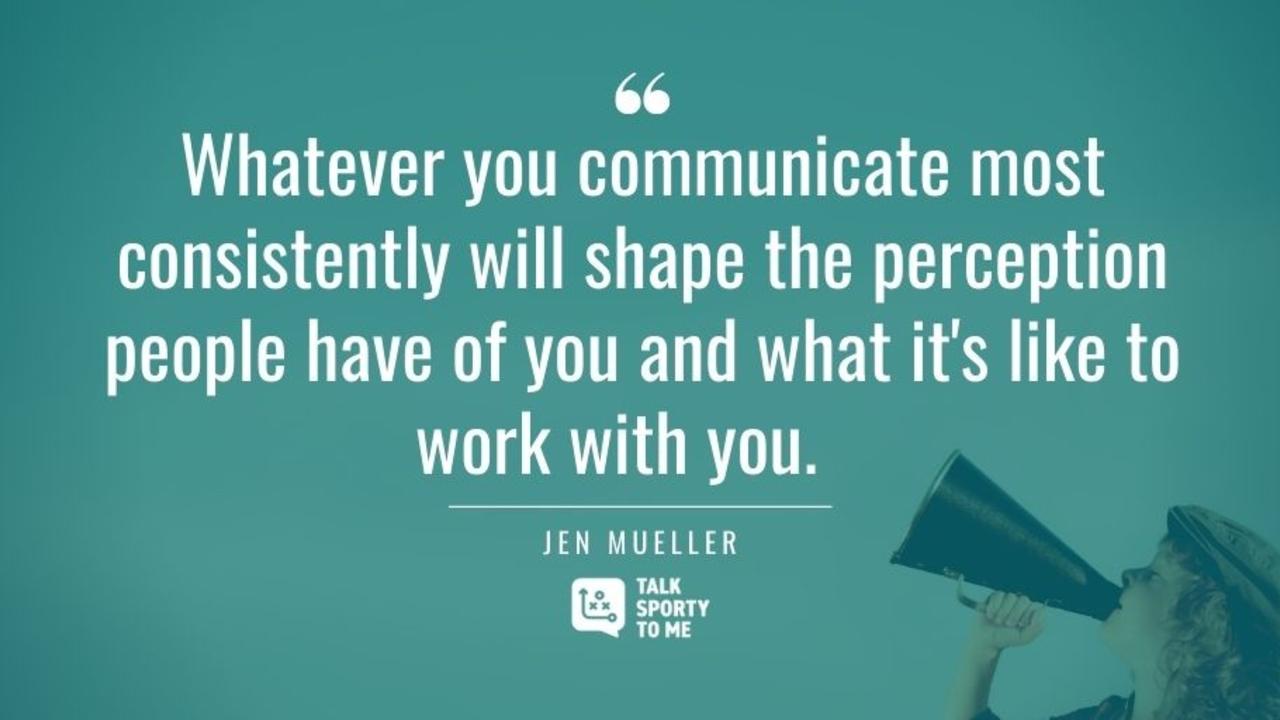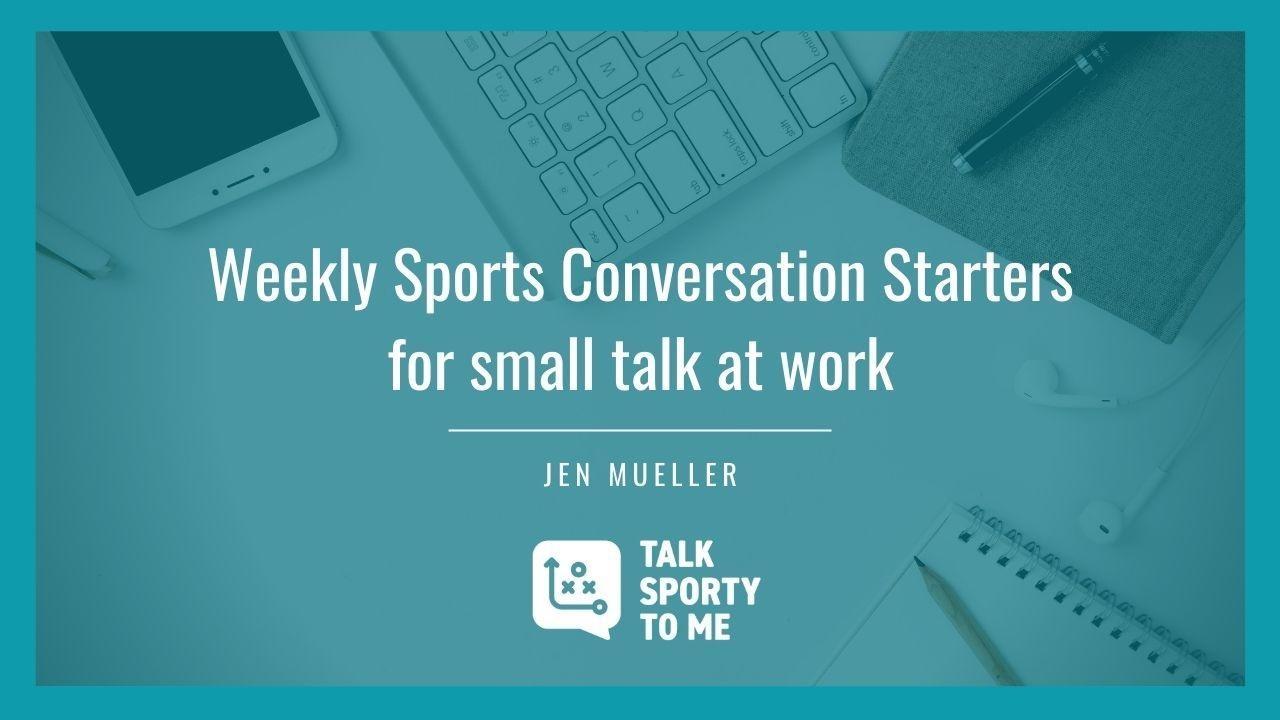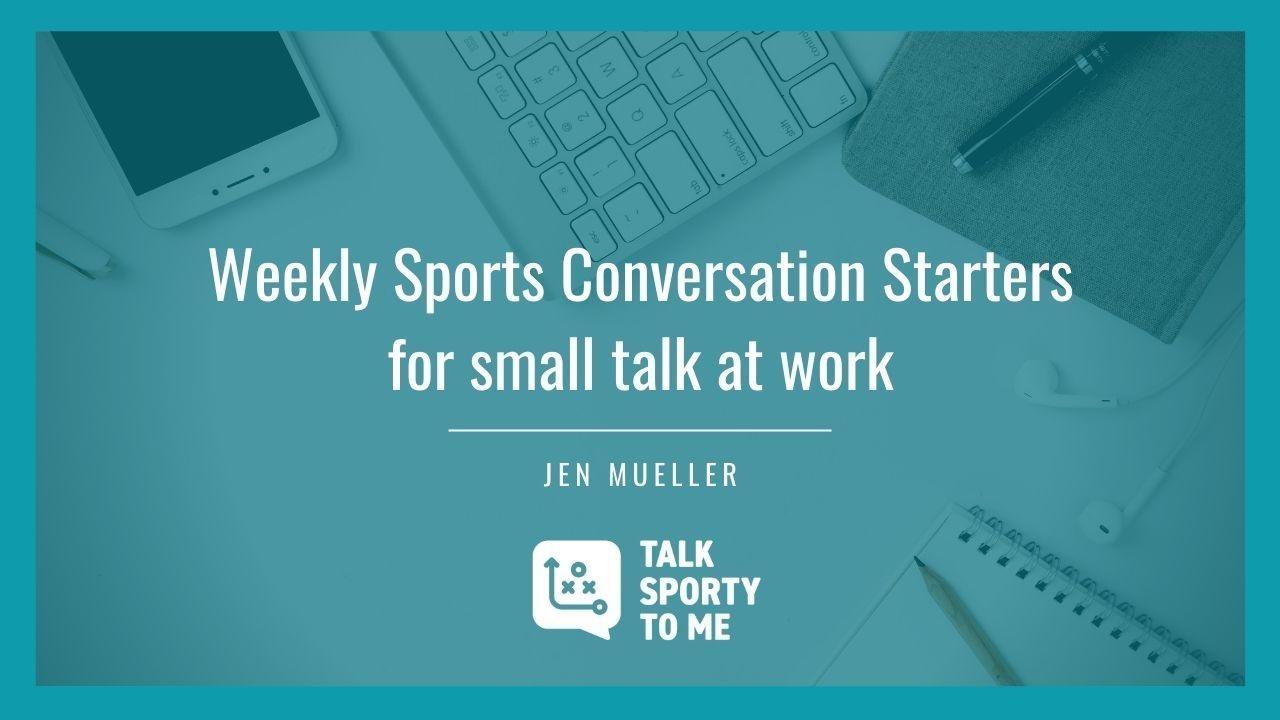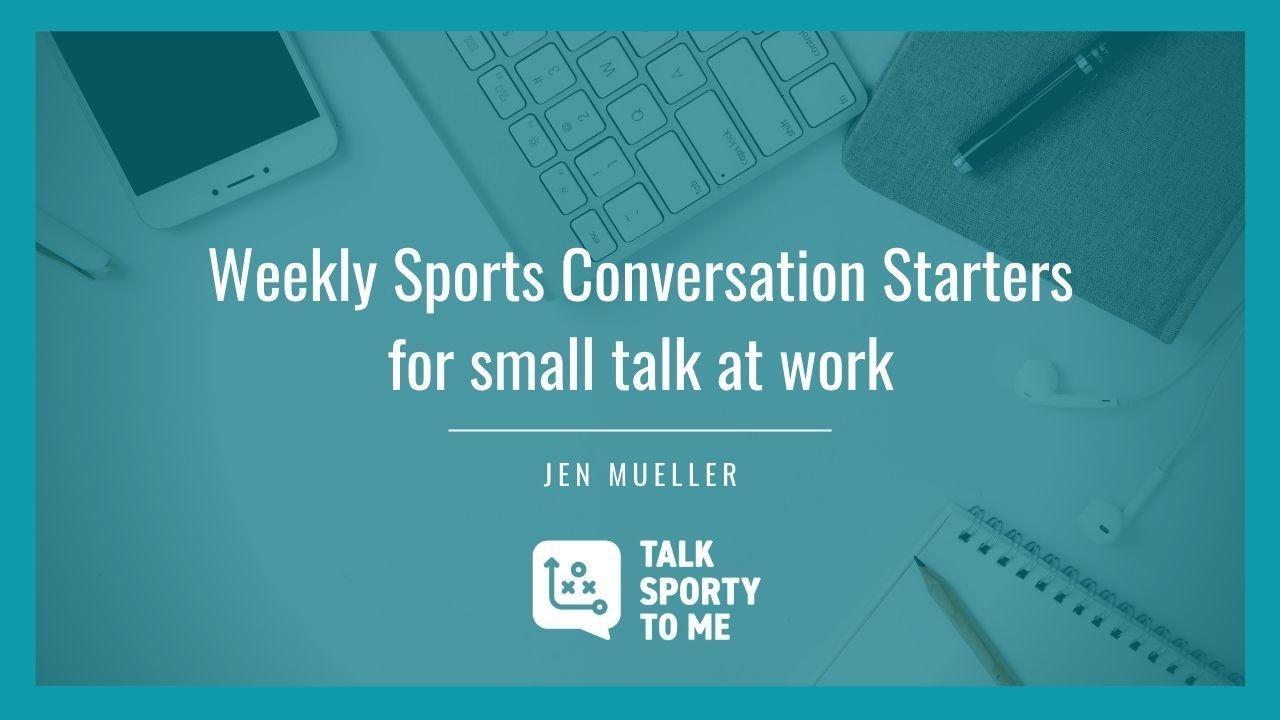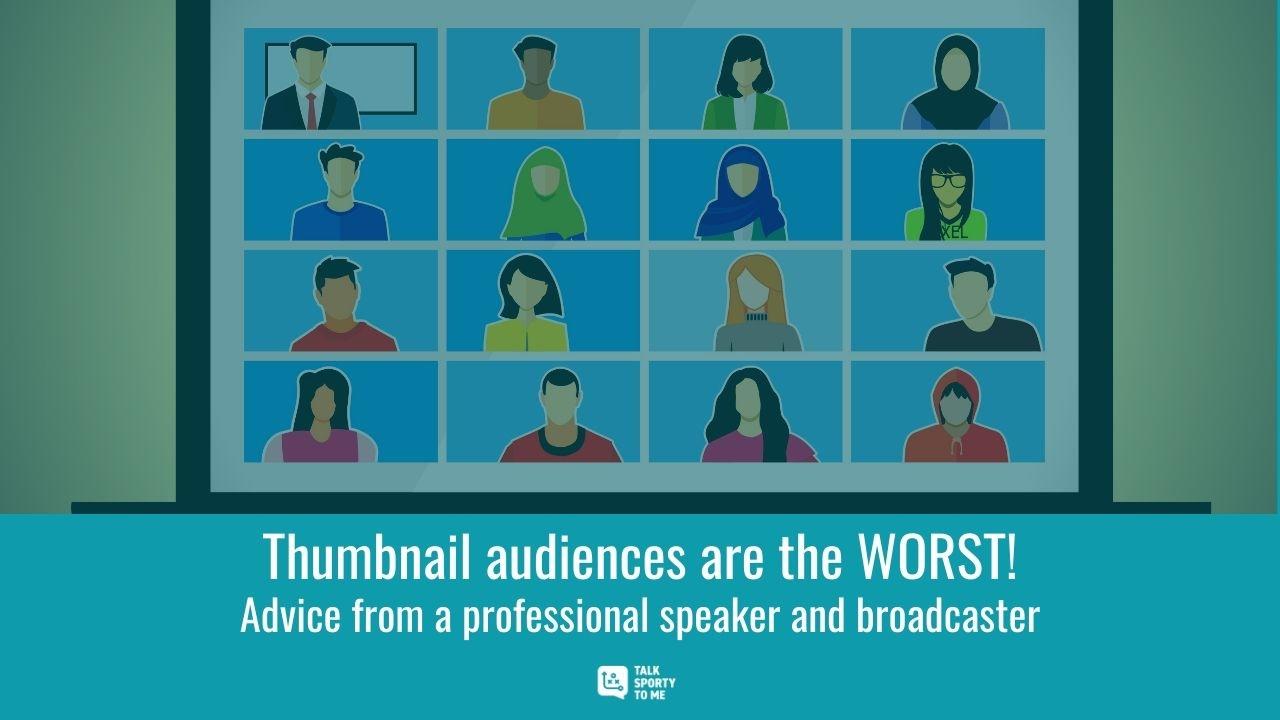There are a number of conversation skills that impact your ability to be an effective communicator.
Controlling your emotions is one of those skills....
Conversations rarely have all or nothing results, particularly when we’re talking about small talk.
Each exchange gets you a little closer to buildin...
I intended to write this in January 2020. That’s when I originally gathered the interviews inside the Seahawks locker room. Had the Hawks won one more...
Labor Day isn’t just a holiday for most people it’s also the unofficial end of summer, it traditionally marks the start of school, and it’s the point ...

I talk for a living. Most often, I'm talking to athletes as part of my job.
Those conversations look a lot different these days.
There's no face-t...
Update Now?
My Ten Percent Happier meditation app asked that question every day for a week. Each day I clicked “Next time” because it just seemed lik...
Here’s a conversation starter and a challenge… What can you say outside of “good” when responding to the question, “How are you?”
There are literally...
There's a reason you’ve probably been told to “keep it simple” at some point. It's a reminder not to overthink or overcomplicate the process or the id...
"What did I miss?"
It's how you might start a conversation that's already in progress and it's an important starting point for every email you send...
Among the many headlines I read in the last week this one stands out:
“The coronavirus has killed water-cooler chatter but it’s a key skill for busin...
You've probably noticed I talk about more than sports. There's a reason for that.
As I mention in the video, there's a correlation between sports, c...
*NOTE: This article is not a commentary on masks, social distancing or other COVID-19 protocols. Please follow the guidelines established by your loca...

